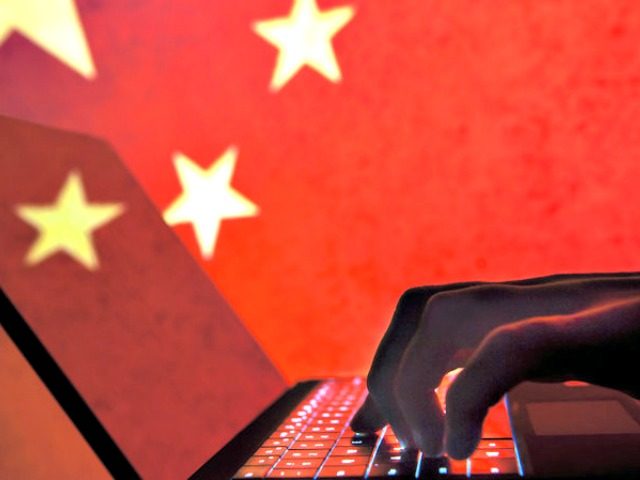A page on WeChat, a Chinese social media site, claimed American officials have been “processing dead bodies” of Chinese coronavirus victims into burgers and feeding them to the masses, the South China Morning Post revealed on Tuesday, claiming Beijing had shut the page down.
Prior to its deletion, however, the page – the “Scholar Forum for Ultimate Truth” – had attracted 1.7 million page views, according to the Post.
China has built an extensive online censorship apparatus that has successfully shut down a wide variety of factual information detrimental to the regime or simply commentary by dissidents on the failures of the Communist Party. Yet when faced with outrageous false information that disparages America or other foreign nations, China’s censors suddenly struggle to keep up with the volume of material.
The Post noted that one of the most outrageous posts on the “Scholar Forum for Ultimate Truth” page, a pro-communist conspiracy WeChat account, accused Americans of eating those killed by the Chinese coronavirus pandemic.
“The US has been processing dead bodies from Covid-19 [Chinese coronavirus] diseases into hamburgers,” the page reportedly claimed, adding that the bodies “were very likely of being processed into frozen meat, fake beef or pork, or processed into cooked meat as hamburgers and hot dogs.”
The page offered as evidence of this claim the unsubstantiated allegation that “cannibalism has existed in the U.S. before … and only a few dozen years ago, Americans ate blacks, Indians and Chinese.”
The offending post was published last month and garnered 100,000 readers as well as nearly 1,000 financial contributors to the page. The Post reported that its content was not unusual for the page, which regularly posted anti-Western, anti-American conspiracy theories and insults. The page was reportedly only taken down this week.
“While China has the world’s most sophisticated censorship system, misinformation and sensational content still runs wild on the internet. There are about 30 million social media accounts on WeChat alone,” the Post observed.
There is little evidence that China is interested in shutting down anti-American conspiracy theories, especially given that the Chinese Foreign Ministry has peddled them officially. The most regularly touted conspiracy theory about the Chinese coronavirus pandemic is the claim that the virus did not originate in Wuhan, China, where the first cases were reported, but in a U.S. Army laboratory in Maryland.
“It might be US army who brought the epidemic to Wuhan,” Foreign Ministry spokesman Zhao Lijian accused in March. “Make public your data! US owe us an explanation!”
The Chinese state media outlet Global Times, which regularly uses unnamed “Chinese netizens” as a metric of public opinion, later added the claim that the Fort Detrick, Maryland U.S. Army lab was the alleged source of the virus. Neither Zhao nor the propaganda newspaper have offered any evidence for this claim, nor have any independent investigators or journalists revealed evidence for the theory.
Another Foreign Ministry spokeswoman, Hua Chunying, suggested the possibility this month that respiratory illness cases in the United States related to the use of e-cigarettes, or vapes, identified last year were actually misdiagnosed Chinese coronavirus cases. Hua offered no evidence for this theory and did not explain how that was possible given the vaping illness cases were not contagious, while the Chinese coronavirus is believed to spread
To explain the fact that no cases of Chinese coronavirus have been diagnosed outside of Wuhan earlier than the first known cases, Beijing offered another explanation: that American military personnel participating in the Military World Games in October, held in Wuhan, brought the virus into China. According to Vice, the conspiracy theory originated in the West, “but the Communist Party of China has promoted it so aggressively within China that it has become accepted knowledge among the Chinese populace that the U.S. military imported the coronavirus to Wuhan.”
Vice quoted one Chinese-American who said that she found “most Chinese people really believe the U.S. brought the virus to China and they call it ‘USA virus.'”
Chinese state media identified one American servicewoman in particular, Maatje Benassi, as the original carrier of the disease. There is no evidence tying Benassi to the pandemic, and the U.S. Army reservist told CNN that the conspiracy theory has largely destroyed her life.
“I want everybody to stop harassing me, because this is cyberbullying to me and it’s gone way out of hand,” Maajte said in an interview in April.
China was disqualified from the 2019 Military World Games, which it was hosting, for “extensive cheating.”
Other information China has allowed to freely propagate behind its “great firewall” include claims “the coronavirus was created as a bioweapon or was funded by the Bill & Melinda Gates Foundation to further vaccine sales … [or] that the virus can be cured by eating garlic or drinking a bleach concoction.”
The false information promoted by China’s official channels contrasts significantly with what its censors act decisively to remove from venues like WeChat. Perhaps the most outrageous example of censored content in the past year is the medical information posted on WeChat by Dr. Li Wenliang, a Wuhan doctor. Li was among the first doctors to identify and diagnose the Chinese coronavirus infection and shared tips with other doctors on WeChat on how to prevent the spread of contagious diseases – tips like washing hands and wearing protective gear. WeChat rapidly censored his tips, even though he shared them only with other doctors and not the public, and detained Li, forcing him to issue a humiliating public apology for the information.
Li died in February of Chinese coronavirus infection. He was 34.
Follow Frances Martel on Facebook and Twitter.

COMMENTS
Please let us know if you're having issues with commenting.